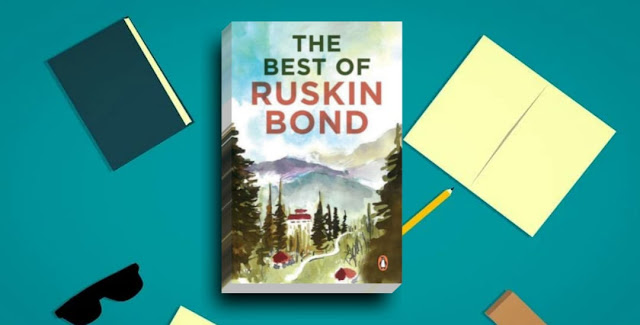A Hornbill
Called Harold is a short story by Ruskin Bond. This story is often covered in
the Grandfather’s Private Zoo series.
Ruskin’s grandfather is an animal lover and is in the habit of keeping a
collection of animals and birds at his home. Harold was the name of a hornbill
bird. The bird has, in particular, a long beak.
Coming to the
story, Harold’s mother like many other hornbills was a careful and obedient
wife. And his father too was an easy-going person. There was a Dhak tree in the garden of grandfather.
In January, when Dhak tree was about
to burst into flame-red blossom, Harold’s father took his wife to a hole in the
trunk of that tree. Taking their wives to that tree was a kind of tradition
followed by hornbills, generation after generation. Harold’s father had shut
his wife in that hole and covered the hole from outside with mud, sticks and
dung. He kept a tiny hole in it for chatting and breathing. Soon, Harold was
born. As he grew bigger in size, space for two became short, thus his mother broke
away the hole-protecting shield and came out on the branches. Harold was happy
at his place, in the hole, as he got food from his parents from time to time.
Well, one day
a villainous cat attacked the hole to grab little Harold, Harold’s parents
attacked the cat boisterously but in the process poor little Harold fell down
from the tree in the garden of grandfather.
Young Ruskin and his grandpa took Harold and made a large wooden cage for it in the verandah, there he got food on time and sunlight and the air was abundant. Soon, the hornbill called Harold became acquainted with Ruskin and grandpa. Harold had a long beak and whenever food was offered to him, he would toss it in the air before gulping it down in his long beak. At times, he played with the tennis ball.
Harold strayed
there for twelve years, probably the longest from all the animals of
grandfather’s zoo. Harold loved rain and before the arrival of rain, he would
squeak and dance in his cage. Harold never drank water but the sight of rain
was not less than a paradise to him. He was quite decent among all pets – he
misbehaved only once – when he took the cigar from one of the guest’s hand.
Even grandmother loved him. Later in life, Ruskin missed Harold and wished he
got summer showers in the paradise and a lot of tennis balls to play with.
It’s very nice
story of a bird and the way it touches our heart is something unusual in animal
stories. Ruskin has penned down this story like a true bird lover. Children
will surely love it.
Enjoyed reading this story! Here
is your chance to read 30 best stories by Ruskin Bond - https://goo.gl/uBeMY6

Very good view
ReplyDeleteI fell it is very good for learning books for exams
ReplyDeleteI think that it is very good for learning chapter
ReplyDeleteDoes not match my scearch but good for exam preparation 👍
ReplyDeleteNice story
ReplyDeleteIt really helps me in my project 😃
ReplyDeletethank you
ReplyDeleteI didn't got my answer How do we know that the author loved Harold
ReplyDeleteReally fantastic story I love this story this is heart touching story in my whole life this is the first story which I love the most Thanks Ruskin bond to write such a great and beautiful stories
ReplyDelete